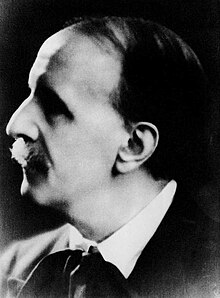- Cantique de Jean Racine – Gabriel Fauré (1845-1924)
- Praise to the Lord, the Almighty – Johann Gottfried Walther (1684-1748)
- Preamble – Louis Vierne (1870-1937)
- Prelude on “Engleberg” – Craig Phillips (b. 1961)
- Hymn 390 - Praise to the Lord, the Almighty (LOBE DEN HERREN)
- Hymn R148 - Brother. Let me be your servant (SERVANT SONG)
- Hymn 301 - Bread of the world, in mercy broken (RENDEZ A DIEU)
- Hymn 660 - O Master, let me walk with thee (MARYTON)
- Hymn 711 - Seek ye first the kingdom of God (SEEK YE FIRST)
- Hymn 477 - All praise to thee, for thou, O King divine (ENGLEBERG)
- Psalm 54 – Tone VIIIa
I always start with the congregational music, choosing hymns, psalms, and spiritual songs that support and magnify the scripture readings for the day. Everything else comes from those choices.
Often I can find an organ or piano piece based on a hymn-tune that we are singing that Sunday. Such is the case this week, as I have two works based on the opening and closing hymns.
The opening voluntary is a chorale-prelude based on the German chorale LOBE DEN HERREN (Praise to the Lord.) It is by the German organist and composer Johann Gottfried Walther. A cousin of Johann Sebastian Bach, his life paralled that of his now-famed relative not only in the years spanned but also in their profession. (For a time they both lived in Weimar, Bach as court musician, and Walther as organist at the Weimar Stadtkirche. Walther remained at that post until his death.)
In the prelude this Sunday you will hear the melody played in the pedal on a trumpet stop. This setting is what is called a "gapped" chorale setting - a movement in which the chorale melody is heard phrase by phrase against a continuously moving texture in counterpoint to it.
Likewise, the closing voluntary is based on the closing hymn. ENGELBERG was composed in 1904 by the British composer Charles Villiers Stanford for the hymn "For All the Saints." It was fashionable in the earlier 20th century until it was eclipsed by the immensely popular SINE NOMINE, which Ralph Vaughan Williams composed for the same hymn in 1906.
 |
| Craig Phillips |
The organ piece by Craig Phillips, Prelude on "Engleberg," is more "Prelude" than "Engleberg." It starts with an opening fanfare before going into an original melody on the solo trumpet. It is a noble, heroic melody with a fanfare-like rhythm that goes on for three pages of music before we finally hear the familiar hymn-tune, played through, just once, with each phrase interrupted with a pedal solo reminiscent of the heroic melody from the first section. The piece ends with a recapitulation of the opening "A" section.
 |
| Louis Vierne |
No comments:
Post a Comment
Note: Only a member of this blog may post a comment.